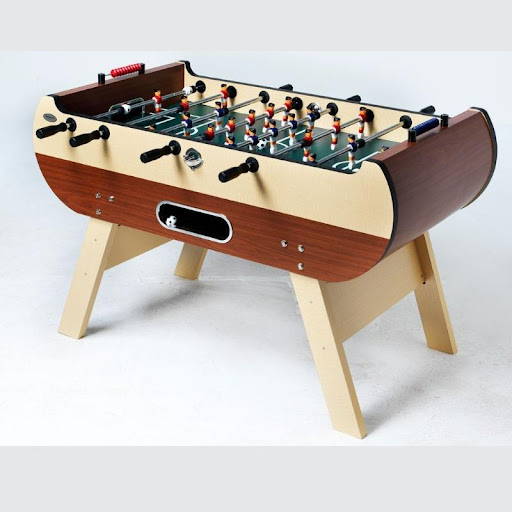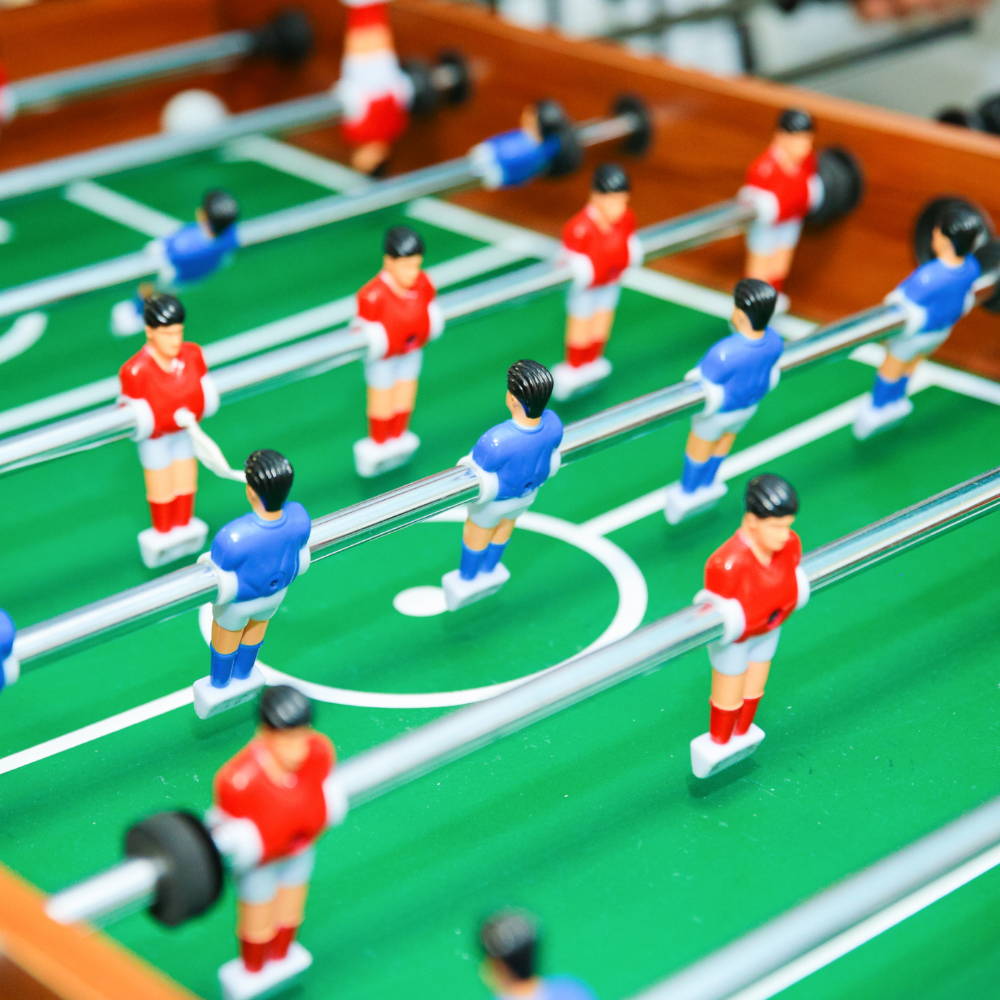What is Table Football
Table Football: An Exciting Game of Skill and Strategy
Table football, also commonly known as foosball, is a popular indoor game that brings the excitement of football directly into your living room, games room, or local pub. This game, which originated in Europe, has gained widespread popularity worldwide, becoming a beloved pastime and even a competitive sport in its own right.

History of Table Football
The invention of table football is attributed to Harold Searles Thornton, who patented the idea in the UK in 1923. He was inspired by a matchbox, which suggested to him a game that would use rods to control figurines and simulate the sport of football. Fast forward almost a century later, the game is now enjoyed worldwide, with official leagues, professional players, and international championships.
Structure and Design
A standard table football setup is designed to mimic a football field. The table contains eight rows of "foosmen" (plastic, metal, or wooden figures) attached to horizontal metal rods. Each team controls four rods with 1, 2, 5, and 3 foosmen respectively, designed to represent the goalkeeper, defenders, midfielders, and attackers in a real football match.
The players control these foosmen by manipulating the rods, with the objective of striking the ball into the opponent's goal. A typical foosball table includes a score-keeping mechanism, and some tables even feature telescopic rods for safety.
Rules of the Game
While there are various rule sets depending on the country or even the specific bar or pub you're in, the general aim of the game remains the same: score more goals than your opponent. A match usually goes up to five or ten goals, depending on the agreed-upon rules. Here are some common aspects of the game:
- The Serve: Games usually start with a coin toss. The winning team gets the first serve, dropping the ball into the playfield through a hole at the side of the table.
- Ball Control: Players use their foosmen to block, pass, and "kick" the ball. Spinning the rods is generally considered a foul.
- Scoring: A point is scored when the ball enters the goal. After a goal, the team that was scored upon gets to serve the next ball. The game continues until a team reaches the predetermined number of points.
Table Football as a Competitive Sport
While many enjoy table football as a casual recreational activity, there is also a serious competitive side to it. Various national and international organizations host professional foosball tournaments, complete with rankings and substantial cash prizes. The International Table Soccer Federation (ITSF) governs the game at the international level and organizes the annual Table Football World Cup.
Benefits of Playing Table Football
Playing table football can be beneficial in numerous ways:
- Social Interaction: It's a game that encourages face-to-face interaction and can be a great ice breaker at social gatherings.
- Improves Hand-Eye Coordination: The quick action of foosball can help improve hand-eye coordination and reaction times.
- Strategic Thinking: Although it may look like a simple game, foosball requires a high level of strategic thinking. Players need to anticipate their opponent's moves, create offensive opportunities, and plan their defence.
- Stress Relief: Playing a game of table football can be a fun way to unwind and relieve stress.

Additional Benefits
Playing table football can offer a range of physical, mental, and social benefits beyond the fun and enjoyment it provides. Here are some additional benefits of playing table football:
1. Physical Fitness
Although it might not seem like a strenuous activity, playing table football can offer a light workout. The rapid wrist movements and constant hand switching can improve hand dexterity and arm strength. Standing for extended periods can also enhance stamina and promote good posture.
2. Mental Agility
Foosball requires quick thinking and decision-making skills, which can improve mental agility. Players need to strategize their game plan, react to the opponent's moves, and adjust their strategies on the fly.
3. Promotes Teamwork
When played in doubles, table football can be a great way to develop teamwork and cooperation. Partners need to communicate effectively and work together to defend their goal and score against their opponents.
4. Boosts Competitive Spirit
Foosball, like any other game, can help foster a healthy competitive spirit. It encourages players to strive for improvement, learn from losses, and take wins and losses in stride.
5. Enhances Focus and Concentration
The fast-paced nature of the game requires players to maintain constant focus and attention to detail. This can help improve concentration levels, a skill that is transferable to many other areas of life.
6. Improves Fine Motor Skills
The game requires precision and carefully controlled movements, which can enhance fine motor skills. These are the abilities that involve the coordination of small muscle movements in our hands, fingers, and wrists.
7. Social Skills and Bonding
Foosball is a social game. It encourages interaction between players, which can help improve social skills. It can also be a great bonding activity among friends, family, or coworkers.
8. Offers a Break from Screen Time
In today's digital world, activities that offer a break from screen time are essential for good health. Table football is a game that demands physical presence and allows a fun way to disconnect from digital devices.

In conclusion, table football, or foosball, is an exciting, fast-paced game that offers both recreational fun and serious competitive play.
While it may seem like just a simple game, the benefits of playing table football extend far beyond the table. It encourages a combination of physical activity, mental agility, and social interaction that few other indoor games can match.
So, whether you're looking for a new hobby or seeking a friendly competitive outlet, consider giving table football a try.
Are you looking for a Football Table? check out our Football Table Range





